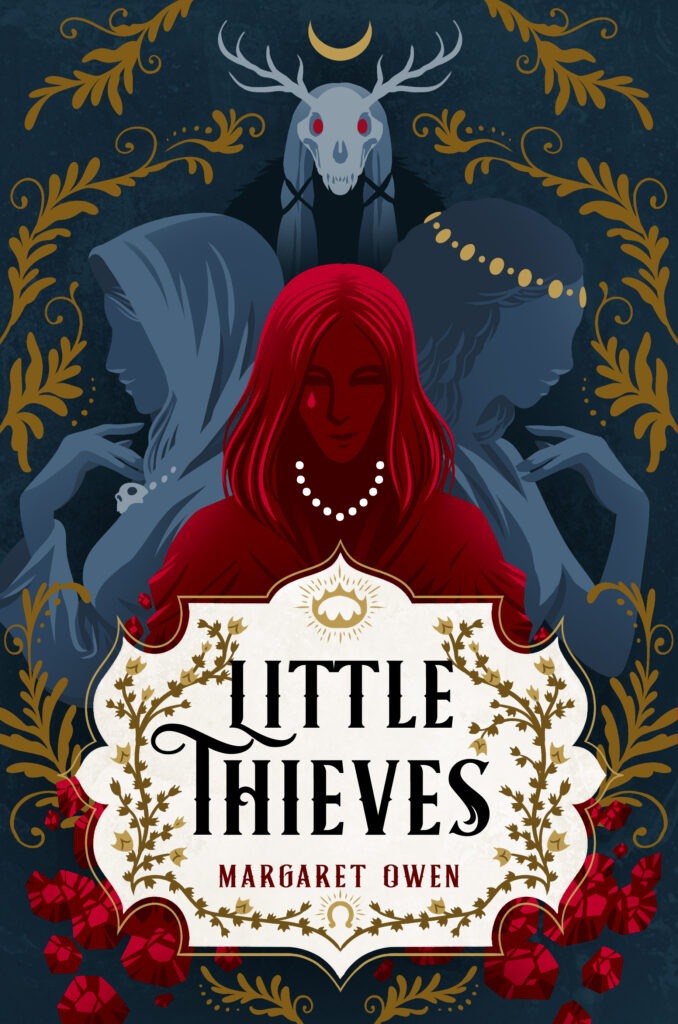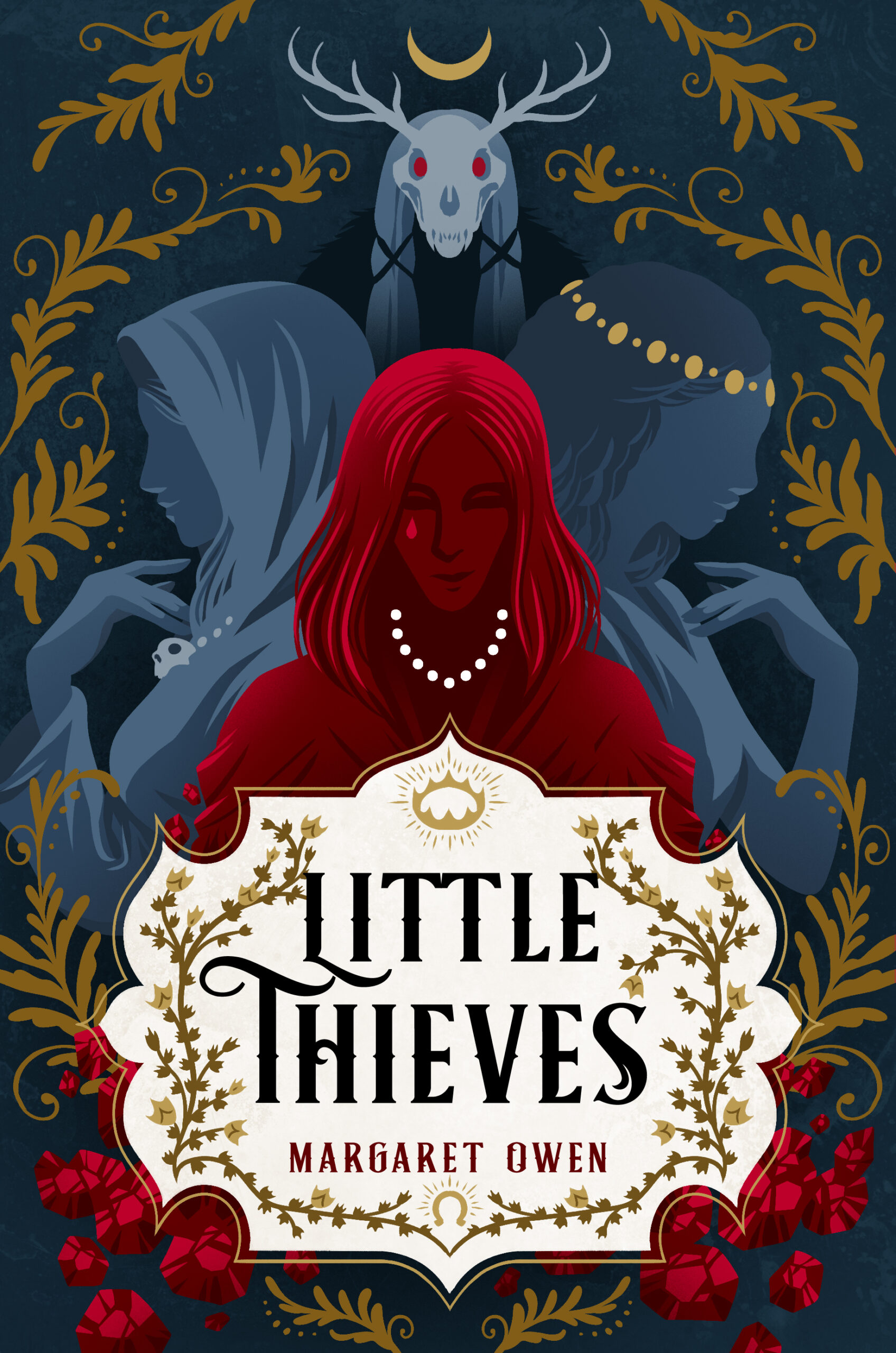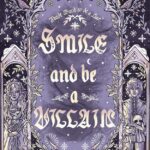
Genres: Fantasy, Queer Protagonists
Representation: Demisexual-coded MC, demisexual-coded love interest, secondary sapphic characters and F/F or wlw, very minor nonbinary characters, queernorm world
Published on: 19th October 2021
ISBN: 1250191904
Goodreads

Once upon a time, there was a horrible girl...
Vanja Schmidt knows that no gift is freely given, not even a mother's love--and she's on the hook for one hell of a debt. Vanja, the adopted goddaughter of Death and Fortune, was Princess Gisele's dutiful servant up until a year ago. That was when Vanja's otherworldly mothers demanded a terrible price for their care, and Vanja decided to steal her future back... by stealing Gisele's life for herself.The real Gisele is left a penniless nobody while Vanja uses an enchanted string of pearls to take her place. Now, Vanja leads a lonely but lucrative double life as princess and jewel thief, charming nobility while emptying their coffers to fund her great escape. Then, one heist away from freedom, Vanja crosses the wrong god and is cursed to an untimely end: turning into jewels, stone by stone, for her greed.
Vanja has just two weeks to figure out how to break her curse and make her getaway. And with a feral guardian half-god, Gisele's sinister fiancé, and an overeager junior detective on Vanja's tail, she'll have to pull the biggest grift yet to save her own life.
Margaret Owen, author of The Merciful Crow series, crafts a delightfully irreverent retelling of "The Goose Girl" about stolen lives, thorny truths, and the wicked girls at the heart of both.
I received this book for free from the publisher via NetGalley in exchange for an honest review. This does not affect my opinion of the book or the content of my review.
Highlights
~turns out you get a little messed up if your moms are gods
~slowly turning into gemstones is Not A Good Time
~a shapeshifter’s guide to humans: be a squirrel and let them get on with it
~this is a TERF-free fairytale
~“I cannot believe I’m attracted to a human civics primer.”
I don’t think the Goose Girl is a very well-known fairytale, and it you do know it, you probably know either the Brothers Grimm version, or the exquisite retelling by Shannon Hale that was published in 2003 (and which I strongly reccomend, because it is, as I said, exquisite).
Hale’s retelling sticks very closely to the Grimm version of the story.
Owen’s does not. And I am very glad, because it’s awesome.
If you don’t know the fairytale, the most important part is that a wicked maid steals the identity of her nobleborn mistress, leaving the original, true princess to suffer life as a peasant (sometimes after the maid has tried to kill her). Vanja is the wicked maid of the story, but it’s immediately clear that she’s far less one-dimensional than her Grimm counterpart: abandoned by her birth mother, Vanja has been raised by two of the Low Gods – Death and Fortune. But the Low Gods don’t do anything for free, and once she was old enough her new mothers told her she had to choose which of them she would serve – not as a respected priestess or anything, but as a servant or slave – for the rest of her life. Weirdly enough, Vanja wasn’t super in love with this plan and refused to choose, so now she’s living among other mortals, with the deal being that whoever she calls on for help first – Death or Fortune – is the one she’ll serve.
Vanja has no intentions of calling on either of them ever, and she has a plan to get herself beyond their reach for good. It involves being a brilliant cat-burglar, and, disguised as the princess she betrayed, taking the Empire’s nobility for everything they’ve got.
And it’s all going great – right up until another Low God curses her to turn into jewels as punishment for her greed, and the princess’s monstrous fiance comes home early. And the cherry on top? An investigator has arrived to look into Vanja’s robberies.
When it rains, it pours.
I don’t usually like first-person, but I think it was exactly the right choice for this story, because getting the reader inside Vanja’s head is critical. At first glance, what she’s done – stealing princess Giselle’s identity, stealing gold and jewelry from dozens of people – looks immoral, and maybe it is. But it’s very hard to believe that when you learn and understand Vanja’s reasons, not all of which are revealed at once. Yes, she’s out to escape her adopted mothers, but there’s a lot more to it than that. This is fundamentally a story about classism, not just in the sense that Owen is critiquing the system that gives a few people everything and takes-takes-takes from the rest, but this is a story that demands we get down from our high horses; that the reason many criminals turn to crime is because the world’s pushed them there, and we need to acknowledge that. It’s not as simple as this person broke the law and should be condemned out of hand and forever for it.
The little thief steals gold, but the great one steals kingdoms; and only one goes to the gallows…
It’s complicated, and messy, and maybe not so easy to tell who’s in the right and who’s in the wrong.
Not that Owen lectures us with this; it’s something that unfolds naturally in the process of telling the story. Something we can’t help but work out for ourselves as we see what Vanja has to deal with – and what she’s had to deal with, in carefully chosen flashes of the past.
And there’s just no getting away from the fact that Vanja is a brilliant character, the kind you love to love – prickly, smart, snarky–
“You see,” I say gravely, “when two people love each other very much, or at least think the other’s passable if you squint–”
–and secretly, terribly lonely. Even if that’s not something she can admit to herself.
So it’s a good thing the rest of the cast sparkles as it gathers around her. Some take a little longer than others to show their best sides, but others you’ll adore immediately, like the delightfully feral demigoddess Ragne, the daughter of the Low God who cursed Vanja and whose task is to oversee Vanja’s attempts to ‘return what she stole’. I have a special place in my heart for feral characters who don’t understand clothes or why humans make things so complicated all the time! Much easier to shapeshift into a squirrel or cat and let the humans be weird.
But the way they all come together reminds me a little bit of heist stories – even though this isn’t a heist story, it has all the best aspects of one, like found family that has each other’s backs, a team of allies who click together like puzzle pieces, and a brilliant, daring plan that needs to be pulled off without a hitch.
There’s quite a lot to juggle, but Owens never drops the ball. There’s so much story packed into these pages, but the book never feels overfull or rushed; the pacing is perfect, and there’s never a dull moment – even the quieter scenes are vitally important, poignant, powerful. And the writing itself is just as wonderful as it was in The Merciful Crow duology, Owen’s previous books (which made it onto my Best of the Decade list, so, you know, take it as read that Owens is one hell of a writer, okay?), action-packed but still lyrical, with imagery you won’t forget in a hurry;
I find Irmgard’s face twisted with pure, seething fury. Then it’s sucked under like a spider drowned in icing.
I mean. !!! That is gross and visceral and the perfect way to describe it. Gah!
And because I’m me, I can’t finish this review without mentioning the worldbuilding. Owen has gone ahead and created a whole new world for Vanja’s tale, one that uses lords-and-ladies era Germany/Prussia as a starting point (I think – there’s an Empress and castles and lots of German words, anyway, especially for sausages!) and then spirals from there into something much more unique. Some things, like kobolds and nachtmaren, take their names from and are obviously inspired by Germanic and Slavic folklore, but what won my heart were the Low Gods – universal powers and concepts given (mostly) humanoid form. Owen’s imagination goes beautifully wild with the Low Gods – I adored details like Fortune’s crown of coins and bones, and the fact that the Low Gods change drastically from region to region – not every iteration of Fortune has a crown, for example, or even a humanoid shape.
the wreath of coins about her brow shimmered and flipped, changing from copper to coal to silver to gold.
There’s also the fact that this is a world completely lacking in queerphobia. Vanja herself is very clearly coded as demisexual, but we also have sapphic characters in our cast, and glimpse several characters who use they/them pronouns, as well as several men with husbands. Maybe my favourite detail in this respect was the inclusion of trans people; although there aren’t any among our cast, we know they exist, and are accepted, and maybe best of all, it’s made very clear that our sapphic characters would happily marry trans women – because women are women regardless of what’s between their legs, thanks.
Owen’s world may have evil fiances using monsters to clear their way to the throne, but TERFs can GTFO and stay-the-fuck gone!
Which is all to say – this book seriously rocks, people. It’s deep and fast and clever, and beautiful in all sorts of unexpected ways. It has many giggle-moments. It’s such an amazing, expansive retelling.
It’s bloody brilliant, and if you haven’t pre-ordered it already, you should.







Leave a Reply